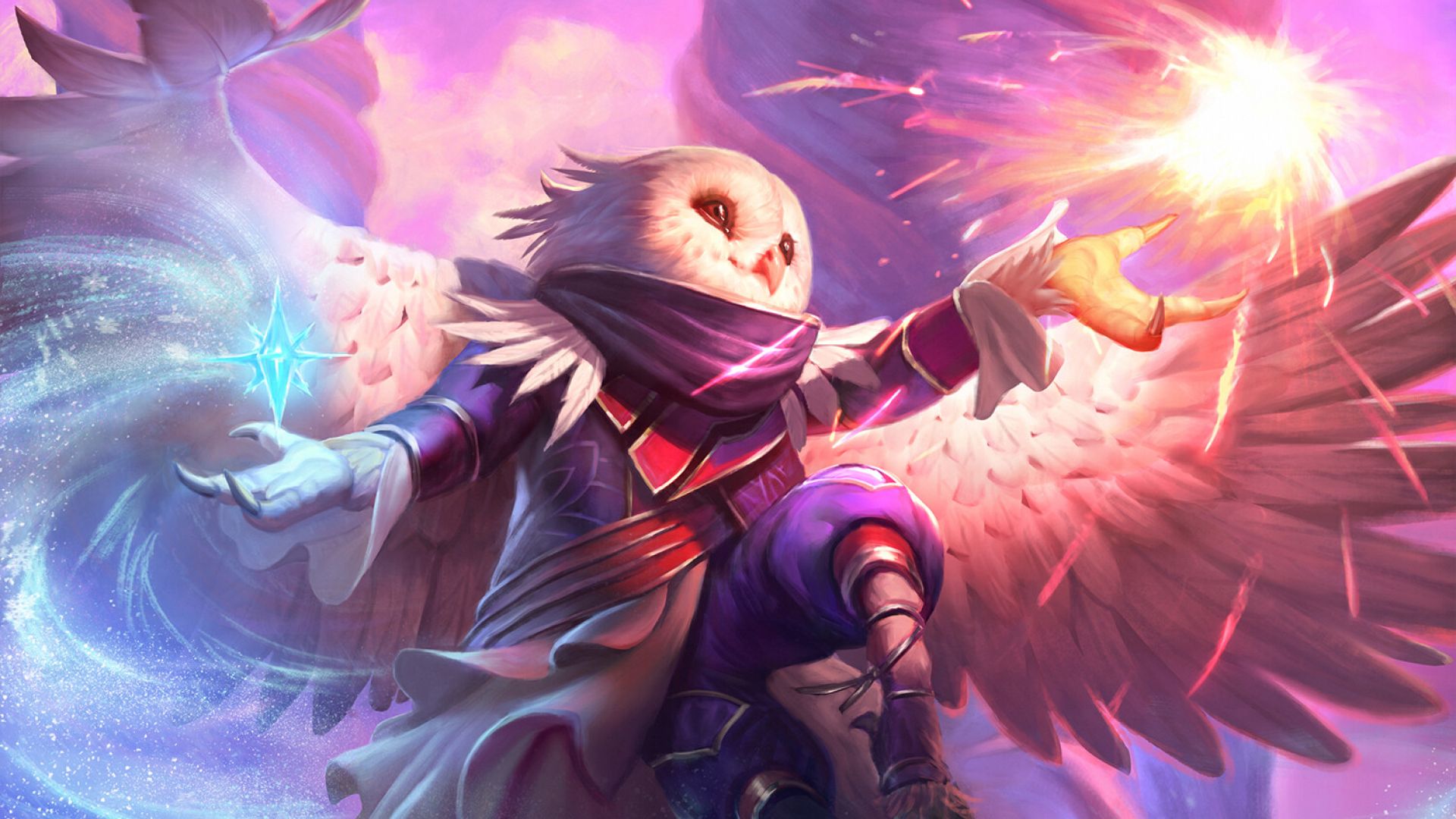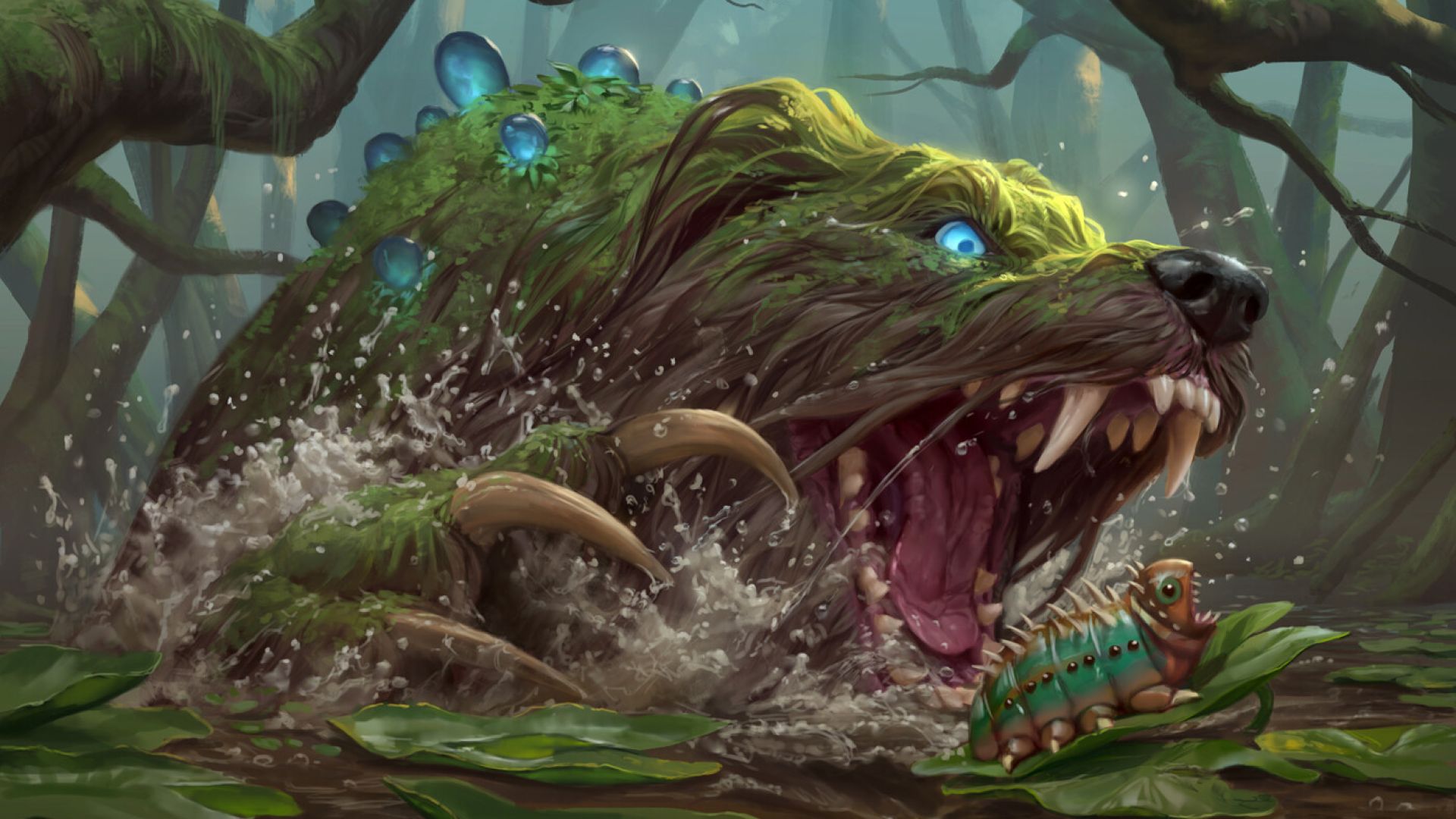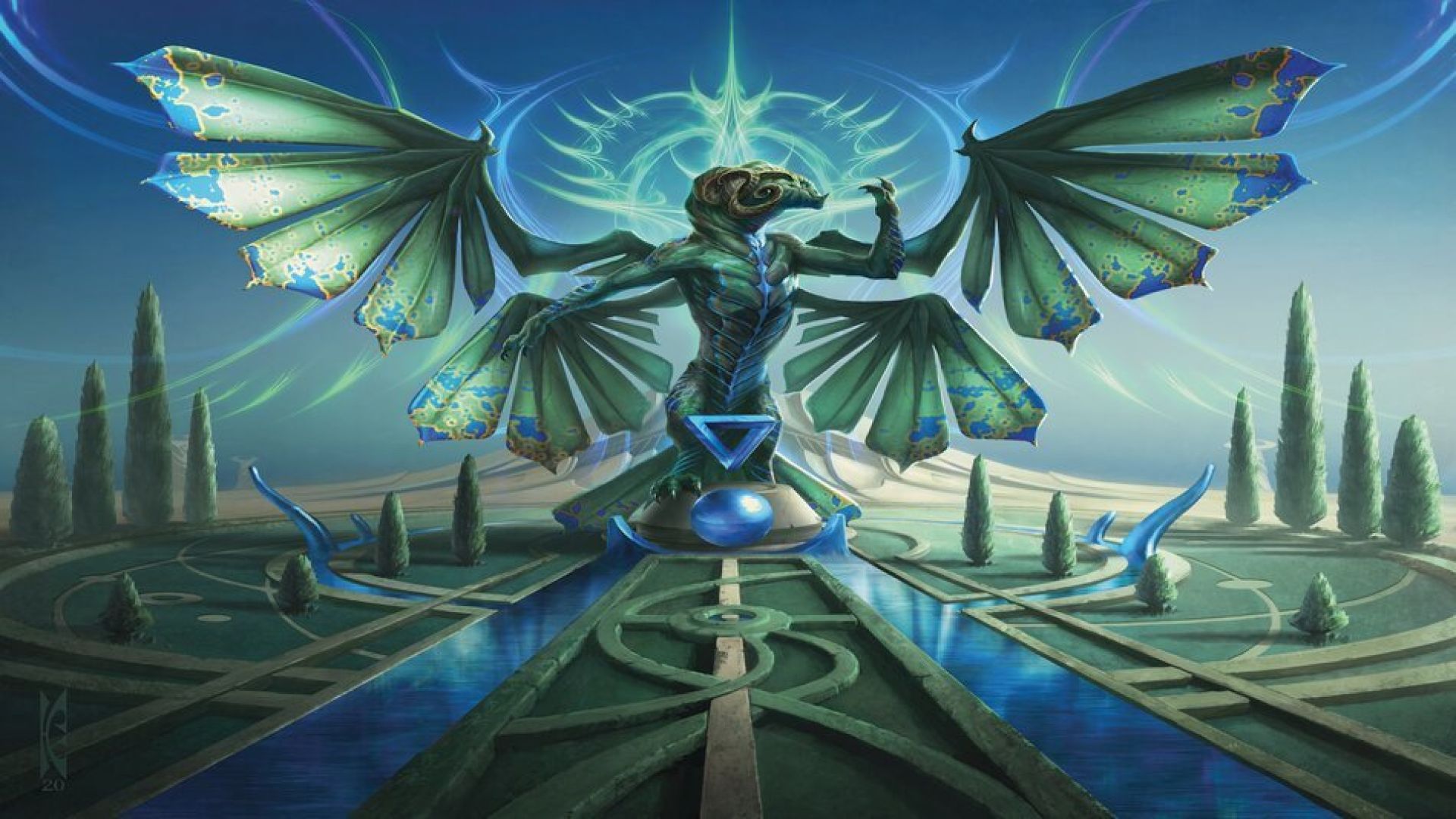Magic: The Gathering—Arena wants you to go back to school
Magic: The Gathering has explored worlds ruled by despotic dragons, a celestial pantheon who wage war on each other using mortals as pawns, and a race of biomechanical horrors. Its latest set introduces perhaps the most terrifying threat yet: spell-powered teenagers.
Strixhaven: School of Mages dropped on Magic: The Gathering—Arena on April 15, inviting players to their first day at the multiverse's preeminent arcane university. Proving much more than just a Harry Potter knock-off, Strixhaven's whimsical setting proved immediately popular with players. The new set introduced a host of fresh faces along with a very familiar one, three new mechanics (or four, if you're pedantic), and a peek into the near future of the world's most popular collectible card game.

The university comprises five colleges defined by a pair of enemy mana colors, ostensibly opposed values smashed together with interesting results. New students align themselves with either Silverquill, Lorehold, Witherbloom, Prismari, or Quandrix, each with their own philosophy and specialty. (The plane of Arcavios is home to five elder dragons who founded Strixhaven untold ages ago, lending the colleges their names and magical inclinations.) What that means for the game is an abundance of multicolored cards and five distinct deckbuilding archetypes.
Each of the five dominant archetypes shares some overlap or interaction with at least one of the other colleges. For example: the black/green Witherbloom's about both gaining life and sacrificing creatures—most often swarms of little Pests—to fuel bombastic spells. This pairs well with blue/green Quandrix’s host of spells that summon fractal tokens, along with the black/white Silverquill's ability to slap +1/+1 counters across your creatures, beefing up that horde of Pests.
All of the colleges can access three new abilities introduced in Strixhaven. Ward taxes an opponent who targets the protected creature with a spell or ability. Owlin Shieldmage bleeds three life from anyone targeting them with abilities or spells, while Waterfall Aerialist makes those spells cost an additional two mana just to pull off. Ward is an old friend with a new name that Wizards of the Coast said will be an evergreen keyword from now on. Expect to see it show up in other sets.

Cards bearing the Magecraft keyword trigger when you cast an instant or sorcery, which you ought to do pretty often. Strixhaven sports a major bias towards non-creature spells, so Magecraft abilities should be popping off like fireworks. The trigger effect often cleaves to the five colleges' signature abilities or otherwise synergizes with that school's mages.
The last new mechanic is a two-for-one: Learn and Lesson, introducing a keyword and new card type. Lessons are normal-looking cards with varied abilities ranging across the five mana colors, plus colorless. Their full potential unlocks when you play a card with the Learn keyword on it, letting you draw a card, then discard a card; or pull a Lesson card from outside of the game into your hand. This means Lessons can chill in your sideboard (a separate pile that doesn't count towards card totals) instead of lurking at the bottom of your deck or showing up when what you really needed was another land.

Students will no doubt spend plenty of time in the Biblioplex during their tenure at Strixhaven, perusing the Mystical Archive housed within. These cards are spells from throughout Magic: The Gathering's history, reprinted with unique art and frames, which show up in booster packs. They are only legal (read: playable) in their original format—with the exception of Strixhaven's limited environment. Magic Arena players who dole out the currency for a draft or sealed run can use any Mystical Archive cards for that specific run.
Speaking of draft, the community is already enamored with Strixhaven's limited environment. The complex interactions between the five colleges engenders plenty of weird and wacky combos without introducing creatures or planeswalkers that win a game the moment they hit the battlefield. More intricate than Kaldheim but not nearly as blow-the-doors-off powerful as last year's Ikoria or 2019's Eldraine, drafting Strixhaven provides a solid balance between strategy and approachability.

Strixhaven is also the first set since Arena's full release on mobile devices. Players reported numerous visual bugs and login issues on launch, but Wizards has been quick in patching and squashing these as they crop up, leaving the community plenty of time to theorycraft emergent Standard strategies. Nothing as game-breaking as the Tibalt's Trickery combo has yet surfaced, but time will tell.
It's easy to see how Strixhaven might set the stage for the upcoming Adventures in the Forgotten Realms, a Dungeons & Dragons-themed set that will replace 2021's core release. Strixhaven is chock-a-block with creature types commonly associated with fantasy RPG classes—mages, clerics, warlocks and such—and the relatively stable power level should support a healthy Standard environment once the two-year domination of Throne of Eldraine ends with its September rotation.
from PCGamer latest https://ift.tt/3x8EfD5
Magic: The Gathering has explored worlds ruled by despotic dragons, a celestial pantheon who wage war on each other using mortals as pawns, and a race of biomechanical horrors. Its latest set introduces perhaps the most terrifying threat yet: spell-powered teenagers.
Strixhaven: School of Mages dropped on Magic: The Gathering—Arena on April 15, inviting players to their first day at the multiverse's preeminent arcane university. Proving much more than just a Harry Potter knock-off, Strixhaven's whimsical setting proved immediately popular with players. The new set introduced a host of fresh faces along with a very familiar one, three new mechanics (or four, if you're pedantic), and a peek into the near future of the world's most popular collectible card game.

The university comprises five colleges defined by a pair of enemy mana colors, ostensibly opposed values smashed together with interesting results. New students align themselves with either Silverquill, Lorehold, Witherbloom, Prismari, or Quandrix, each with their own philosophy and specialty. (The plane of Arcavios is home to five elder dragons who founded Strixhaven untold ages ago, lending the colleges their names and magical inclinations.) What that means for the game is an abundance of multicolored cards and five distinct deckbuilding archetypes.
Each of the five dominant archetypes shares some overlap or interaction with at least one of the other colleges. For example: the black/green Witherbloom's about both gaining life and sacrificing creatures—most often swarms of little Pests—to fuel bombastic spells. This pairs well with blue/green Quandrix’s host of spells that summon fractal tokens, along with the black/white Silverquill's ability to slap +1/+1 counters across your creatures, beefing up that horde of Pests.
All of the colleges can access three new abilities introduced in Strixhaven. Ward taxes an opponent who targets the protected creature with a spell or ability. Owlin Shieldmage bleeds three life from anyone targeting them with abilities or spells, while Waterfall Aerialist makes those spells cost an additional two mana just to pull off. Ward is an old friend with a new name that Wizards of the Coast said will be an evergreen keyword from now on. Expect to see it show up in other sets.

Cards bearing the Magecraft keyword trigger when you cast an instant or sorcery, which you ought to do pretty often. Strixhaven sports a major bias towards non-creature spells, so Magecraft abilities should be popping off like fireworks. The trigger effect often cleaves to the five colleges' signature abilities or otherwise synergizes with that school's mages.
The last new mechanic is a two-for-one: Learn and Lesson, introducing a keyword and new card type. Lessons are normal-looking cards with varied abilities ranging across the five mana colors, plus colorless. Their full potential unlocks when you play a card with the Learn keyword on it, letting you draw a card, then discard a card; or pull a Lesson card from outside of the game into your hand. This means Lessons can chill in your sideboard (a separate pile that doesn't count towards card totals) instead of lurking at the bottom of your deck or showing up when what you really needed was another land.

Students will no doubt spend plenty of time in the Biblioplex during their tenure at Strixhaven, perusing the Mystical Archive housed within. These cards are spells from throughout Magic: The Gathering's history, reprinted with unique art and frames, which show up in booster packs. They are only legal (read: playable) in their original format—with the exception of Strixhaven's limited environment. Magic Arena players who dole out the currency for a draft or sealed run can use any Mystical Archive cards for that specific run.
Speaking of draft, the community is already enamored with Strixhaven's limited environment. The complex interactions between the five colleges engenders plenty of weird and wacky combos without introducing creatures or planeswalkers that win a game the moment they hit the battlefield. More intricate than Kaldheim but not nearly as blow-the-doors-off powerful as last year's Ikoria or 2019's Eldraine, drafting Strixhaven provides a solid balance between strategy and approachability.

Strixhaven is also the first set since Arena's full release on mobile devices. Players reported numerous visual bugs and login issues on launch, but Wizards has been quick in patching and squashing these as they crop up, leaving the community plenty of time to theorycraft emergent Standard strategies. Nothing as game-breaking as the Tibalt's Trickery combo has yet surfaced, but time will tell.
It's easy to see how Strixhaven might set the stage for the upcoming Adventures in the Forgotten Realms, a Dungeons & Dragons-themed set that will replace 2021's core release. Strixhaven is chock-a-block with creature types commonly associated with fantasy RPG classes—mages, clerics, warlocks and such—and the relatively stable power level should support a healthy Standard environment once the two-year domination of Throne of Eldraine ends with its September rotation.
via IFTTT

Post a Comment